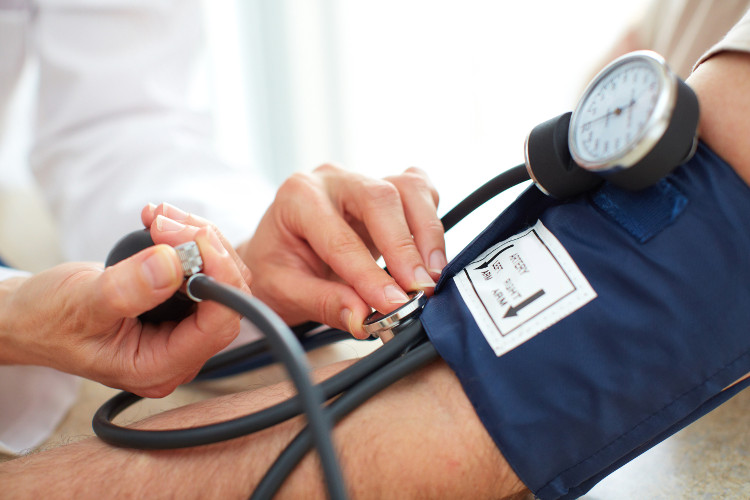Eating habits affect high blood pressure
High blood pressure is a lifestyle-related disease that can affect your blood pressure. It should be noted that up to 25-30% of urban residents and 10–20% of rural people have hypertension
Blood pressure can damage arteries and can cause heart failure, brain stroke, kidney failure and eye damage.
Risk factors include age, race, family history, overweight, lack of exercise, smoking addiction, high intake of sodium, low potassium, calcium and magnesium, alcohol abuse, stress and chronic diseases Other things like high cholesterol, diabetes, kidney disease.
The relationship between salt and hypertension: Absorption of a lot of salt causes hypertension and low salt to help lower blood pressure. Salt in the diet plays an important role in regulating blood pressure. Processed and ready-to-eat foods often contain lots of salt. About 80% of the sodium we use comes from processed foods like pickles and sauces.

Salt in the diet plays an important role in regulating blood pressure.
Some foods with high sodium content should be avoided by hypertensive patients:
- Smoked pork
- Tomato juice
- Peas
- Canned spinach
- Cake
- French fries and biscuits
- Fast food (including instant food)
- Pickles
- Soy
Some other factors also affect our blood pressure:
- Potassium: The amount of potassium in our bones is very important. The ideal balance between potassium and sodium is 3-1. Green fruits and vegetables are a rich source of potassium.
- Sugar and hypertension: Using many sugars is related to overweight and obesity. These conditions can cause hypertension.
- Using alcoholic beverages increases blood pressure
- Consuming too much caffeine can lead to hypertension.
- Smoking, in any form, increases the risk of hypertension.
Here are the foods that help lower blood pressure:
- Green leafy vegetables, lettuce, kale, spinach and beets
- Berries such as blueberries, strawberries and raspberries
- Fatty milk and yogurt
- Oatmeal
- Banana
- Fish have Omega 3 fatty acids: Salmon
- Sunflower seed
- Garlic and herbs
- Black chocolate
- Pistachio nuts are not salt
- Olive oil
- Pomegranate
- Sleep immediately after lunch is prone to high blood pressure
- What is high blood pressure for each subject?
- Many Vietnamese people suffer from high blood pressure due to overeating
- High blood pressure in children
- Find out the secret of increasing blood pressure
- What should I pay attention to on New Year's Day?
- Health - what to do 'because of the habit of eating salty and eating light
- Grapes - good remedy against high blood pressure
- The principle of 'three or four more' for people with high blood pressure
- High blood pressure increases the risk of dementia in middle age by 45%
- There is a link between sleep and high blood pressure
- Find a simple 'medicine' to treat high blood pressure
 Green tea cleans teeth better than mouthwash?
Green tea cleans teeth better than mouthwash? Death kiss: This is why you should not let anyone kiss your baby's lips
Death kiss: This is why you should not let anyone kiss your baby's lips What is salmonellosis?
What is salmonellosis? Caution should be exercised when using aloe vera through eating and drinking
Caution should be exercised when using aloe vera through eating and drinking